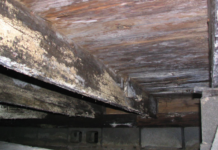Effective management of manufacturing processes is essential for maintaining high standards of quality and compliance. One critical aspect of this management involves handling returns and approvals efficiently. This article explores the significance of Return Material Authorization Software and the Part Production Approval Process in modern manufacturing.
Understanding Return Material Authorization (RMA) Software
Return Material Authorization (RMA) Software is a pivotal tool in the manufacturing industry. It streamlines the process of managing returns, ensuring that products returned by customers are handled efficiently and effectively. By automating the RMA process, manufacturers can reduce the time and resources spent on managing returns, thereby improving overall productivity.
Benefits of Implementing RMA Software
Implementing Return Material Authorization Software offers numerous benefits. It enhances visibility into the return process, allowing manufacturers to track and manage returns with ease. Additionally, RMA software can integrate with other systems, providing a seamless workflow that minimizes manual intervention and errors.
Key Features of RMA Software
The key features of Return Material Authorization Software include automated return tracking, real-time updates, and comprehensive reporting. These features help manufacturers maintain accurate records, streamline communication with customers, and ensure compliance with regulatory requirements.
The Role of RMA Software in Customer Satisfaction
Customer satisfaction is paramount in the manufacturing industry. Return Material Authorization Software plays a crucial role in enhancing customer satisfaction by providing a hassle-free return experience. With automated processes, customers receive timely updates on their returns, leading to increased trust and loyalty.
Enhancing Efficiency with the Part Production Approval Process
The Part Production Approval Process (PPAP) is a structured procedure used in the manufacturing industry to ensure that new or modified parts meet required specifications. This process is essential for maintaining product quality and consistency.
Steps Involved in the PPAP
The Part Production Approval Process involves several steps, including the submission of production part approval documents, sample product testing, and compliance verification. Each step is designed to ensure that the part meets the necessary standards before it goes into full-scale production.
Importance of PPAP in Manufacturing
The Part Production Approval Process is critical for reducing defects and ensuring product reliability. By adhering to PPAP, manufacturers can identify potential issues early in the production cycle, preventing costly recalls and rework. This process also helps in maintaining regulatory compliance.
Integration of RMA Software with PPAP
Integrating Return Material Authorization Software with the Part Production Approval Process can significantly enhance the overall efficiency of manufacturing operations. This integration ensures that any returned parts are thoroughly evaluated and approved before being reintegrated into the production cycle.
Benefits of Integration
The integration of RMA Software with PPAP provides several benefits, including streamlined workflows, improved data accuracy, and enhanced traceability. This integration allows manufacturers to maintain high standards of quality while efficiently managing returns and approvals.
Challenges in Implementing RMA Software and PPAP
Despite the benefits, implementing Return Material Authorization Software and the Part Production Approval Process can present challenges. These challenges may include resistance to change, high initial costs, and the need for employee training. However, with proper planning and execution, these challenges can be overcome.
Strategies for Successful Implementation
Successful implementation of RMA Software and PPAP requires a strategic approach. This includes conducting thorough research, choosing the right software, and involving all stakeholders in the decision-making process. Additionally, continuous monitoring and evaluation are essential to ensure that the implemented systems are functioning as intended.
Future Trends in RMA Software and PPAP
The future of Return Material Authorization Software and the Part Production Approval Process lies in advanced technologies such as artificial intelligence and machine learning. These technologies have the potential to further streamline processes, enhance accuracy, and provide predictive insights.
Conclusion:
Return Material Authorization Software and the Part Production Approval Process are indispensable tools in the manufacturing industry. They play a crucial role in ensuring product quality, enhancing customer satisfaction, and maintaining regulatory compliance. By embracing these technologies, manufacturers can achieve significant improvements in their operations. For more information, visit trackmedium.com.









